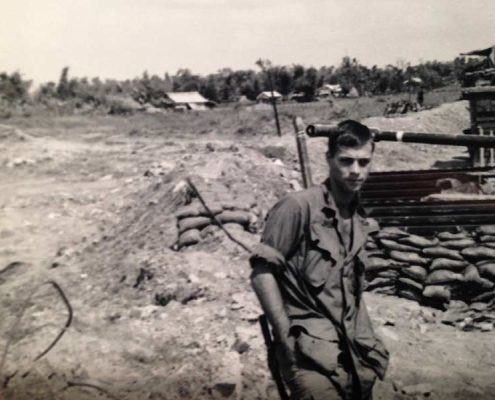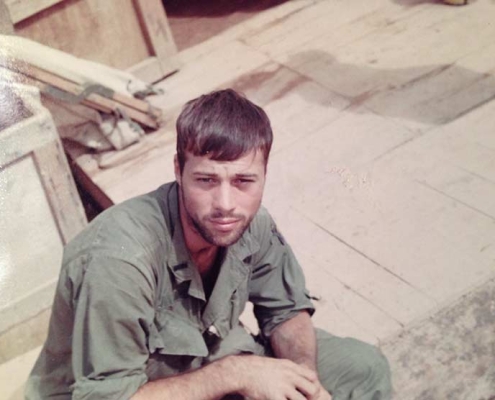Author Background
The author is neither a lawyer, academic, nor career military.
After a year of college and ROTC, he enlisted in the Army as a private. He finished basic combat training as outstanding trainee of his company and battalion. Upon completion of infantry individual advanced training, the author attended Infantry Officer Candidate School where he was a Distinguished Graduate and commissioned a second lieutenant. Subsequent training and courses included airborne, jumpmaster, special forces operations, psychological operations, counterinsurgency operations, civil affairs, jungle warfare operations, and military assistance training advisor.
Assignments included the U.S. Army Special Warfare School Counterinsurgency Department, 101st Airborne Division (Airmobile) combat rifle companies, and 3rd, 6th, and 20th Special Forces A and B teams, civil affairs company, and civic action mobile training team in West Africa. He periodically served as defense and trial counsel with the 101st and Special Forces.
In 1968, the author served in I Corps in Vietnam as an infantry platoon leader, executive officer, and company commander. He was awarded the Silver Star, Bronze Star for Valor, Bronze Star with Oak Leaf Cluster, Air Medal, Vietnamese Cross of Gallantry with Silver Star, and Purple Heart. During his tour, over 90% of his battalion serving in the field became casualties; nearly 1 in 6 were dead. Four months after arriving in country, the battalion’s infantry platoon leader positions had experienced over 100% casualties.
After returning stateside, the author was promoted to captain. Eighteen months later, he left active duty, completed a bachelor’s degree while serving in a Special Forces national guard unit, and secured a master’s degree.
The author subsequently worked in 20 countries (Latin America, Caribbean, Africa, Middle East, Caucuses, Asia) in economic development (strategy, policy, project/program feasibility) with assignments for the World Bank, United Nations Development Programme, U.S. Agency for International Development, Inter-American Development Bank, educational institutions, national governments, and corporations. In two countries, he led teams drafting 5- and 10-year national sectoral development plans; for three others, he worked on pre- and post-conflict/disaster assignments. For the six-nation Gulf Cooperation Council (Bahrain, Kuwait, Oman, Qatar, Saudi Arabia, UAE), the author led a U.S.-British consortium that designed and assessed the feasibility of a regional food reserve in the event of embargo, blockade, or armed conflict which might interrupt food imports upon which member nations were heavily dependent.
He helped found and served on boards of non-profits which assist the economic disadvantaged in the U.S. and abroad. The author has chaired state-wide industry organizations; received gubernatorial appointments to a five-state advisory commission addressing environmental challenges in the Gulf of Mexico and to a state commission advising on greenways; and testified before Congress, negotiated with the U.S. trade ambassador, and lobbied Congress on the North American Free Trade Agreement on behalf of farmers. He was president of the agribusiness group of a private company overseeing operations on 150,000 acres. He founded and headed a solid waste management company sold to a national corporation. As a member of city and county advisory boards and commissions, he has reviewed and helped draft local ordinances and regulations.
To aid in writing this Manual, the author attended undergraduate, graduate, and law school courses, classes, and conferences at the universities of Georgia, Virginia, Duke, and Emory, and portions of a virtual course through the International Institute of Humanitarian Law (San Remo, Italy). These included national security law, military law, international humanitarian law, human rights, international conflict, terrorism, war and human security, international organizations, the future of NATO, internet governance, and legal and policy issues of the Indochina war.


